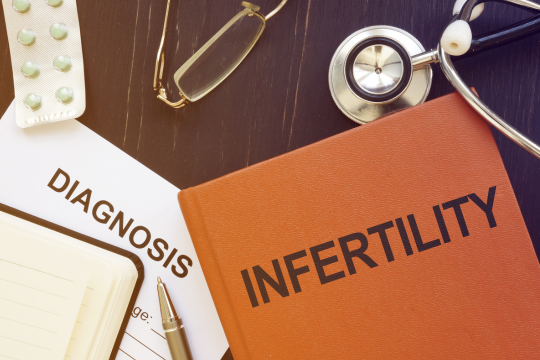June 12, 2024
What Are Common Causes of Infertility?
Infertility can be a challenging and emotional experience for many couples. Understanding the common causes of infertility can help you and your partner take the necessary steps toward finding a solution. Here’s a comprehensive look at the factors contributing to infertility and how the Women’s Center of Athens can assist.
85% of people are pregnant within a year of trying to get pregnant. If you are not pregnant within a year, you should see your doctor for an evaluation. We can always do the assessment anytime you would like, even at 3 months. Please let us know whenever you would like to proceed with a workup.
Common Causes of Female Infertility
Ovulation Disorders
- Polycystic Ovary Syndrome (PCOS): PCOS is a hormonal disorder that affects ovulation, leading to irregular menstrual cycles and infertility. Women with PCOS often experience insulin resistance, obesity, and excessive hair growth.
- Primary Ovarian Insufficiency (POI): Also known as premature ovarian failure, POI occurs when the ovaries stop functioning correctly before age 40. This can be due to genetic factors or autoimmune responses.
- Hypothalamic Dysfunction: Excessive stress, significant weight changes, or very low/high body weight can disrupt the production of hormones necessary for ovulation, such as follicle-stimulating hormone (FSH) and luteinizing hormone (LH).
- Hyperprolactinemia: Excessive production of prolactin by the pituitary gland can reduce estrogen levels and inhibit ovulation.
Damage to Fallopian Tubes
- Pelvic Inflammatory Disease (PID): Infections, often caused by sexually transmitted infections like chlamydia or gonorrhea, can lead to scarring and blockages in the fallopian tubes.
- Previous Surgeries: Surgical procedures in the abdomen or pelvis, including surgeries for ectopic pregnancies, can cause scarring and damage to the fallopian tubes.
Endometriosis
Endometriosis occurs when the tissue that usually lines the uterus grows outside it. This can cause scarring, blockages, and inflammation, interfering with the egg and sperm meeting or implantation.
Uterine or Cervical Issues
- Fibroids and Polyps: Non-cancerous growths in the uterus can block fallopian tubes or interfere with implantation.
- Congenital Uterine Abnormalities: Some women are born with abnormalities in the structure of their uterus, which can affect fertility.
Age
Fertility declines with age, especially after the mid-30s. This decline is due to a decrease in both the quantity and quality of eggs. Women over the age of 35 are advised to seek help after three months of trying to conceive rather than the usual one year.
Lifestyle Factors
- Smoking: Smoking can damage the cervix and fallopian tubes and increase the risk of miscarriage and ectopic pregnancy.
- Weight: Both overweight and underweight women may experience ovulation disorders. Achieving a healthy body mass index (BMI) can improve fertility.
- Alcohol and Drug Use: Excessive alcohol consumption and drug use can negatively affect fertility.
Male Infertility
Semen analysis (sperm count test) evaluates sperm and semen. The test can determine the quality and quantity of sperm.
Diagnosis and Treatment
Diagnosing infertility involves a thorough medical history and various tests, such as blood tests to check hormone levels, ultrasounds, and hysterosalpingography (HSG) to check for blockages
Treatment options depend on the underlying cause of infertility and may include:
- Medications: To stimulate ovulation or balance hormones.
- Surgery: To repair damaged fallopian tubes or remove fibroids.
- Lifestyle Modifications: Changes in diet, exercise, and cessation of smoking or drug use.
- Assisted Reproductive Technologies (ART): These include in vitro fertilization (IVF) or intrauterine insemination (IUI).
Key Takeaways
- Early Diagnosis: Seeking help early can improve the chances of successful treatment.
- Comprehensive Care: At the Women’s Center of Athens, we offer personalized treatment plans tailored to your needs.
- Support and Guidance: We provide compassionate support throughout your fertility journey.
For more information or to schedule a consultation, visit our website or call us at 706-227-8999.
Understanding the common causes of infertility and the available treatment options can empower you to take proactive steps toward achieving your dream of starting a family.
Category:
Book Appointment
For new patients, call us to find a convenient appointment time or use our online Patient Portal to request an appointment.
Categories
Stay Connected with Our Community
Join us on Instagram for the latest updates, health tips, and a peek into our daily activities at the Women’s Center of Athens.
We provide comprehensive healthcare for women, by women.





